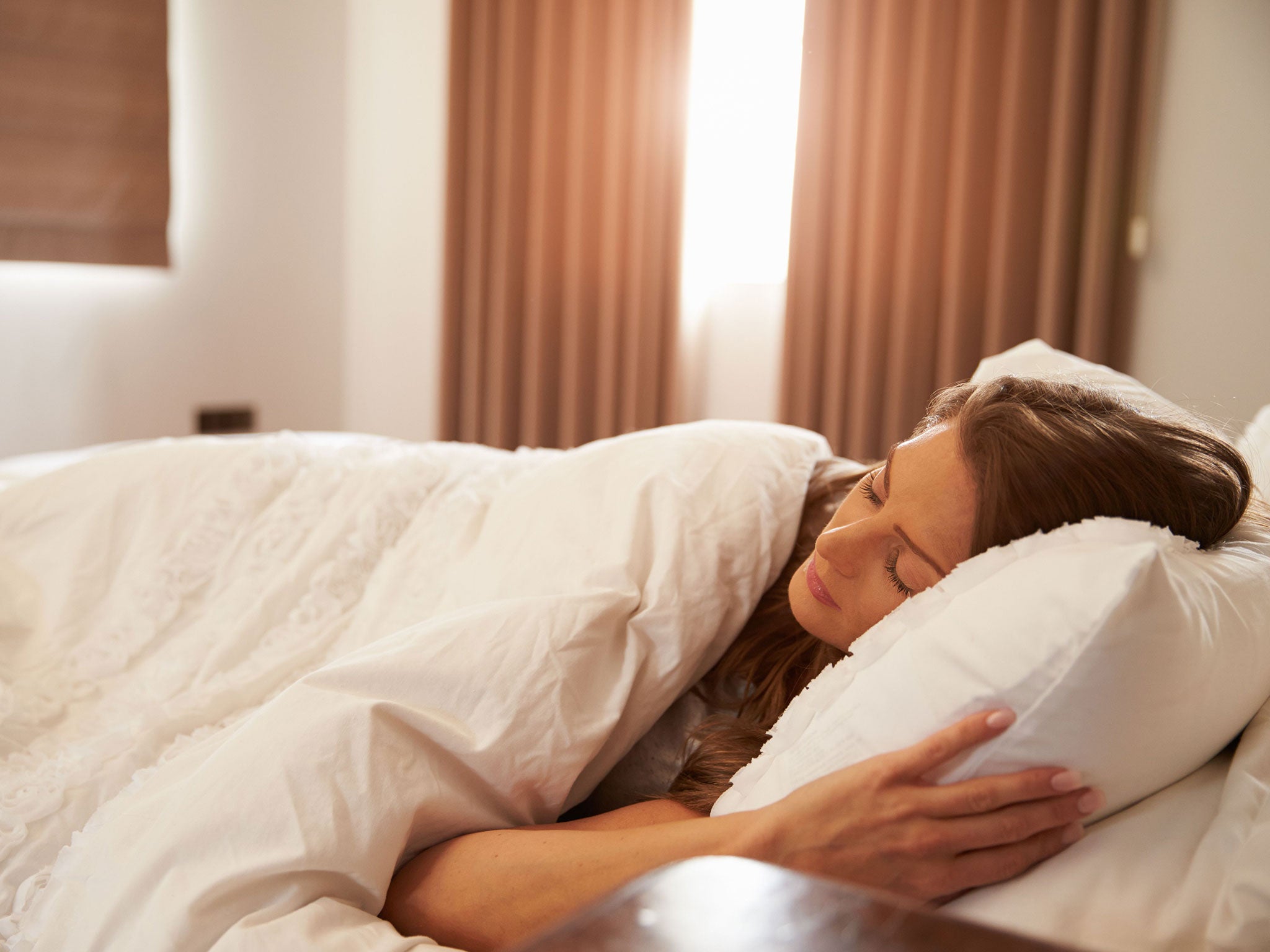7 things not to do before you go to sleep

Your support helps us to tell the story
From reproductive rights to climate change to Big Tech, The Independent is on the ground when the story is developing. Whether it's investigating the financials of Elon Musk's pro-Trump PAC or producing our latest documentary, 'The A Word', which shines a light on the American women fighting for reproductive rights, we know how important it is to parse out the facts from the messaging.
At such a critical moment in US history, we need reporters on the ground. Your donation allows us to keep sending journalists to speak to both sides of the story.
The Independent is trusted by Americans across the entire political spectrum. And unlike many other quality news outlets, we choose not to lock Americans out of our reporting and analysis with paywalls. We believe quality journalism should be available to everyone, paid for by those who can afford it.
Your support makes all the difference.Getting a good night's rest is about more than just going to bed at an appropriate time.
It's also about arranging your evening so that it's not stressful or stimulating in a way that can make it hard to fall and stay asleep.
We know: It's easier said than done.
To help you out, we've rounded up seven common behaviors that can ruin your rest -- plus what you can do instead.
1. Don't use any kind of digital technology.
A growing body of research suggests that staring at the blue and white light emitted from digital screens prevents your brain from releasing the hormone melatonin, which lets your body know when it's time to hit the hay. So it becomes harder to fall and stay asleep.
Take a tip from Arianna Huffington, cofounder and editor of The Huffington Post, who's banned electronics from the bedroom and reads a hard copy book before going to sleep.
2. Don't take sleeping pills (unless you've been diagnosed with insomnia).
The Centers for Disease Control and Prevention estimated that, during a single month in 2013, 4% of Americans over age 20 used a prescription sleep aid.
But as Harvard sleep scientist Patrick Fuller told Tech Insider's Julia Calderone, "I think most people that are taking hypnotic medications actually don't need them and should work to get off of them."
According to Fuller, even if you have trouble sleeping, you probably don't have insomnia, and taking sleeping pills probably won't do you much good.
The medications typically come with a host of side effects, from muscle aches to memory loss. Plus, Fuller said, they can be highly addictive, and your sleeping problems may become worse after you take the pills.
3. Don't drink alcohol.
As anyone who's nodded off after a few glasses of wine is well aware, alcohol often helps you fall asleep.
But research suggests that it can make it harder to stay asleep. As your body starts to metabolise the alcohol during the second half of the night, you may start to get restless.
As Tech Insider's Julia Calderone reported, studies have found that drinking before bed suppresses your rapid eye movement (REM) sleep in particular, which is important for memory and concentration.
4. Don't work in bed (or anywhere in the bedroom).
Experts advise reserving the bedroom for sleep and sex exclusively. Otherwise, you won't associate the bedroom with rest -- and might have a harder time falling asleep.
5. Don't consume caffeine after 5 p.m.
One study found that consuming 400 milligrams of caffeine (that's about how much is in a Starbucks Venti coffee) even six hours before bedtime disrupted sleep. Specifically, those who consumed a caffeine pill six hours before bed slept about an hour less than they slept when they didn't consume caffeine.
The researchers suggest that people limit their caffeine consumption to before 5 p.m., at the latest.
6. Don't eat fatty foods.
Research suggests that eating within the hour before bedtime can hurt both sleep quality and quantity, especially for women.
In particular, eating meals high in fat before bed seems to decrease the time people spend in REM sleep.
If you're hungry late at night, experts recommend eating whole grains paired with protein, like natural peanut butter on whole-wheat bread.
7. Don't exercise.
When you've got a packed schedule, it might seem like the only time available to work out is when the rest of the world is sleeping.
But experts recommend avoiding strenuous workouts in the evening. That's partly because your body temperature rises during cardio workouts, which could make it harder to go to sleep.
Instead, they suggest doing some yoga or simple stretching, which can help you relax.
Read more:
• What you should know about bitcoin and blockchain
• Goldman Sachs: Star Wars will do $8bn in total sales
• The 19 hottest female-founded startups of 2015
Read the original article on Business Insider UK. © 2015. Follow Business Insider UK on Twitter.
Join our commenting forum
Join thought-provoking conversations, follow other Independent readers and see their replies
Comments